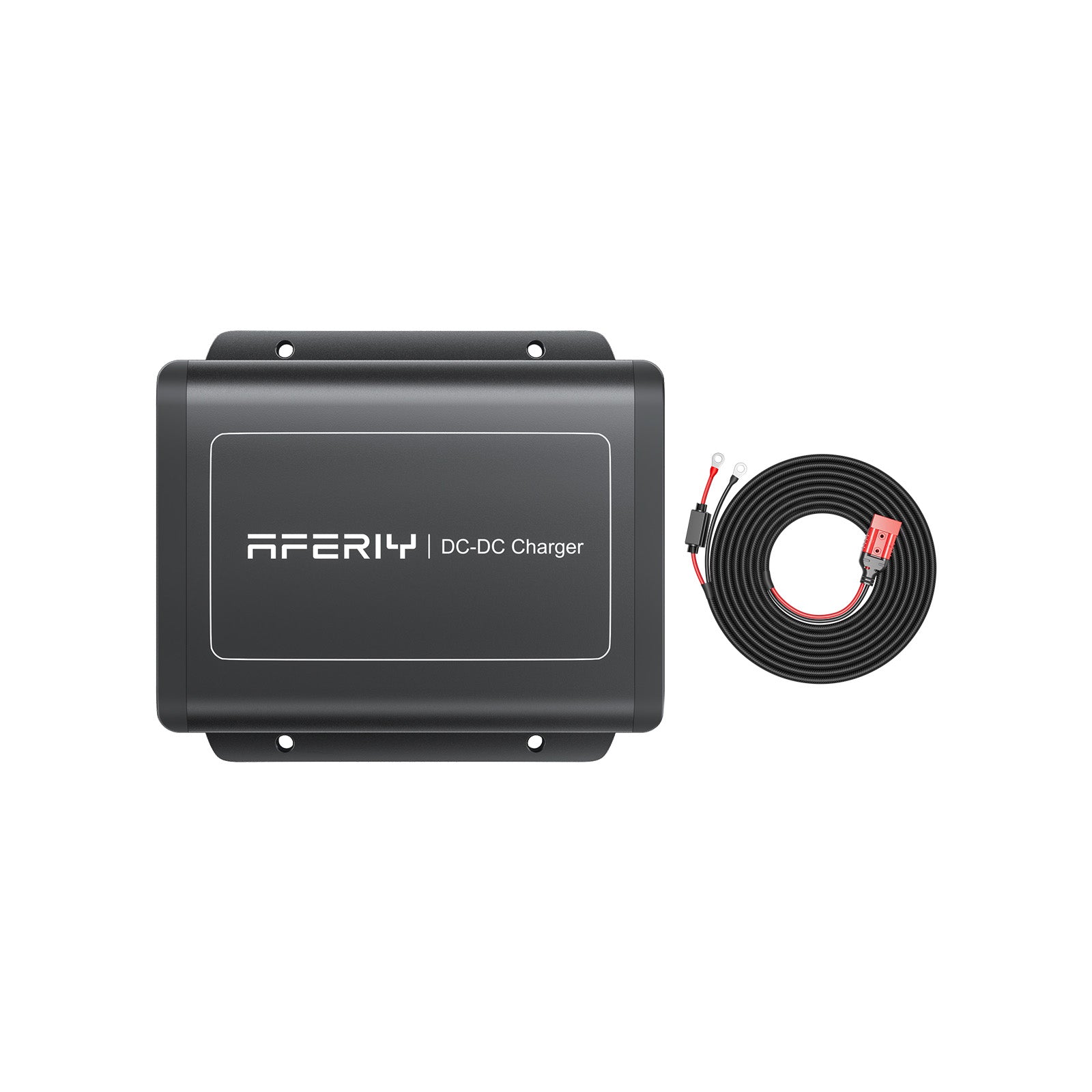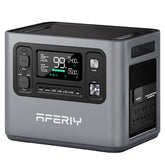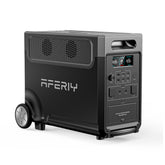How to Get Electricity When Camping?
While many campers enjoy a ‘back to basics’ approach to camping, there are plenty who prefer the creature comforts of a few electrical appliances during their holidays. Camping with electrical appliances can seem daunting at first, but with the right knowledge and equipment electric hook-ups are easy to use and can make your stay more comfortable. In this article, we'll explore the different sources of camping electricity available, as well as some portable power options that can help you stay connected while off the grid.

6 Ways To Get Electricity While Camping
- Camping Electric Hook-ups
- Power Banks
- Portable Power Stations
- Solar Panels
- Gas Generators
- Car Power Inverters
Electric Hook-ups
Many campsites now provide electrical hookups for campers. When you connect to a campsite electric hook-up point, you are able to receive an electricity supply as you would at home. Use a compatible adapter to connect your phone, laptop, or other gadgets to the electrical outlet provided at your campsite. This allows you to easily charge your electronics without any extra gear. Just check in advance if the campsite offers electrical hookups and plan accordingly. Always follow proper safety precautions when using the campsite electrical supply.
Power Banks
If you only need to recharge small electronics, like smartphones, flashlights, and GPS devices, a high-capacity camping power bank will be your best choice. They are rechargeable, so they can be used multiple times and come in various sizes and capacities. Fully charge the power banks at home before leaving for your trip. Then, use the batteries to power your devices at the campsite and recharge them again when you get home. Unfortunately, portable power banks will not provide enough power for larger devices like cameras or computers.
Portable Power Stations
If you have higher power needs, power stations are a step above power banks. Simply put, a portable power station for camping is a power bank with higher capacity and higher power output. They come with AC outlets, DC outlets, USB ports, and other connectors so they can power various devices.
I have an AFERIY P210 2400W Power Station. It has 13 power output outlets and 2048Wh capacity. With 2400W power output, this power station can almost cover my devices. Unfortunately, though it's relatively portable, it’s far too heavy to bring on a backpacking trip or anything similar.
Helpful resources
- How to Choose Best Portable Power Station for Camping?
- 3 Best Portable Power Stations for Camping in the UK

Solar Panels
Portable solar panels are a popular camping power solution, especially for those going on longer trips, as they can capture the sunlight and convert it to electricity. They can be used to power a range of devices, from lights to smartphones to laptops, depending on the size and capacity of the panel. However, they can be expensive and may not work well in areas with limited sunlight.

Helpful resources
Gas Generators
Gas generators are the most common type of generator used for camping. They can be used to power a range of devices, including larger devices such as cooking appliances and even air conditioning units. However, they can be noisy and emit harmful fumes, so it's important to use them in a well-ventilated area.
Car Power Inverters
If you drive to your campsite, a car power inverter can be used to power electrical equipment for camping. It is a convenient and portable solution for powering your electronic devices while on the go. Whether you need to charge your phone or use a small appliance, a car inverter can provide the necessary AC power from your car's battery. This makes it a great tool for camping trips, where access to traditional power sources may be limited.
Camping Power Solutions Comparison
| Camping Power Supply | Pros | Cons |
|---|---|---|
| Electric Hook-ups |
- Convenience
- High Capacity- Compatible with almost all appliances |
- Not all campsites offer electric hook-ups. |
| Power Banks |
- Lightweight - Reusable - Versatile |
- Limited power |
| Portable Power Stations | - Fast charging - Reusable - Multiple power outlets - Large power capacity |
- Too heavy to bring on a backpacking trip. |
| Solar Panels |
- Renewable and eco-friendly - Can be used for a wide range of devices |
- Can get expensive quickly - Will not work well in areas with limited sunlight |
| Car Power Inverters |
- Reliable - Can power a variety of devices, even larger devices - Affordable |
- Heavy - Noisy - Requires fuel |
What To Consider When Thinking About Electricity For Camping?
When thinking about purchasing a device or system that will allow you to have electricity while camping, here are the main questions to think about:
How Many Watts Do Camping Electrical Devices Use?
What type of devices will you need to use or charge? Determine which devices you want to power and their wattage to select the right portable power solution.
Determine which devices you want to power and their wattage to select the right portable power solution, and list all the devices you plan to bring, including their power needs in terms of voltage, amperage, and wattage. Then add up the wattages and plan for some extra capacity, too.
Here is a list of the number of watts used by a few of the most common appliances:
| Appliance/Device | Watts | Hours of Use per Day | Watt-Hours per Day |
|---|---|---|---|
| LED Lantern | 5 | 6 | 30 |
| Phone Charging | 10 | 2 (for 4 phones) | 80 |
| Laptop | 45 | 3 | 135 |
| Tablet | 10 | 1 (for 2 tablets) | 20 |
| Bluetooth Speaker | 20 | 3 | 60 |
| Digital Camera | 50 | 1 | 50 |
| Electric Cooler | 50 | 6 | 300 |
| Total Expected Daily Use | - | - | 675 |
Indicative use only and always check the details for your individual devices.
How Long Is The Camping Trip?
Next, think about how long you will be camping. If camping is for a single day and only small devices are required to be charged, such as a lamp, light bulb, or phone for a few hours, a power bank should be adequate for camping. However, if it’s a long trip of several weeks, the power needs may be a bit greater, and you need to be aware of this when choosing your charging options.
What Type Of Camping Are You Doing?
Before deciding on a specific camping power supply, take some time to consider the type of Camping you typically do. For example, if you're camping in a campground with electrical hookups, you may not need to bring any additional power sources. However, you'll need to plan for alternative power sources if you're camping in a remote location without access to electrical outlets.
If you are car camping, the weight and portability of your power source might not be as important, but if you are backpacking, weight and portability will be a huge consideration.

What Is Your Budget?
Finally, consider your budget. The price points of the various power supplies we’re going to mention next vary widely, so it's important to consider what you can afford and what features are most important to you.
Conclusion
As you can see, there are a lot of options when it comes to electricity while camping. Whether you choose to use a portable power station, solar panels, or a generator, there are plenty of options available to suit your needs and budget. By carefully evaluating your power needs and considering factors like capacity, output, and portability, you can choose the best option for your next camping trip. Usually, the best answer for power needs while camping is some combination of these methods.























Leave a comment
Please note, comments need to be approved before they are published.